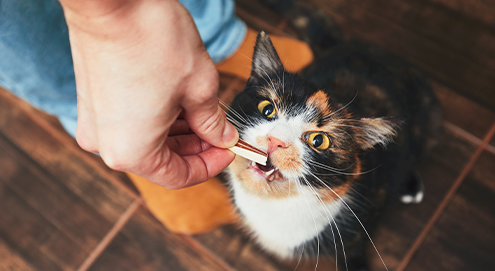What Can Cats Eat?
Written by Antoinet |
Cats are obligate carnivores, which means they cannot go without nutrients of animal origin. They need more proteins and amino acids because their bodies break these down quickly. Still, some cats really enjoy a small piece of fruit or vegetable as a treat. So, what can you safely give your cat? In this blog, we look at various types of fruits and vegetables and explain whether they are suitable for your cat.

Want to Give Your Cat a Piece of Fruit, Veggie or Another Food Item? Keep the Following in Mind:
Always wash raw vegetables and fruit thoroughly before serving.
- Choose fresh products. Canned vegetables often contain a lot of salt, and fruit is usually too sweet.
- Cook vegetables without salt or herbs.
- Cats are not built to digest raw fruits and vegetables. Cooking or pureeing them can improve digestion.
- Always serve small pieces and let your cat get used to new flavours and textures.
Cats do not need fruits or vegetables if they’re on a balanced diet. If you do want to offer them, stick to just one small piece a day. It doesn’t have to be every day. Always observe how your cat handles digestion.
Check out our cat snacks.



